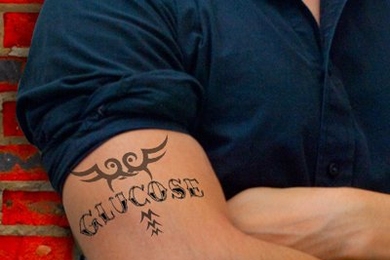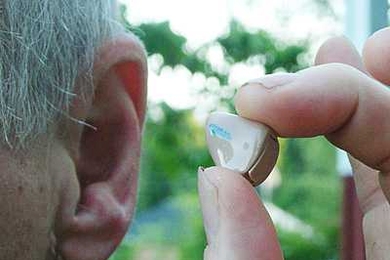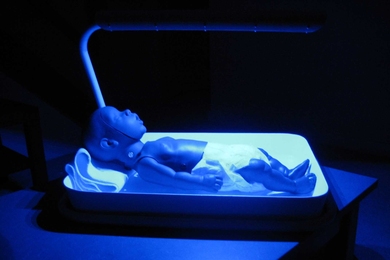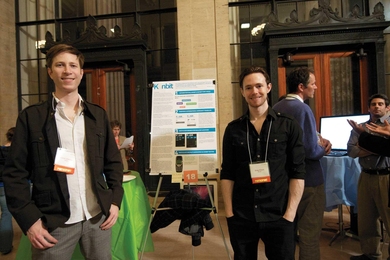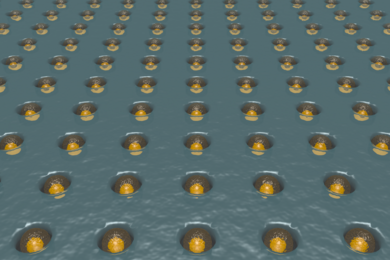New book, 'Bright Boys,' chronicles MIT’s pioneering of IT age
Foreword by Professor Emeritus Jay Forrester shares insight on team’s early work
‘Tattoo’ may help diabetics track their blood sugar
Chemical engineers are working on carbon nanotubes that could be injected under the skin to reveal blood glucose levels.
More precise food-allergy diagnoses
It turns out that many people mistakenly think they have food allergies. A new technology aims to erase all doubt.
Gesture-based computing on the cheap
With a single piece of inexpensive hardware — a multicolored glove — MIT researchers are making Minority Report-style interfaces more accessible.
Now hear this
3-D imaging technology could lead to hearing aids that fit — and thus function — better than current models.
Fly the eco-friendly skies
MIT-led team designs airplanes that would use 70 percent less fuel than current models.
Cementing success
Startup that eyes radical shift in cement industry wins MIT $100K business-plan competition, now in its 20th year.
All in the family: MIT Sloan becoming home for the Hatamis
Third sibling to receive his MBA this spring; follows his older brother and younger sister.
Winners of the ninth annual MIT IDEAS Competition announced
More than $25,000 awarded to seven student teams that apply invention to improve lives
Rapid analysis of DNA damage now possible
Technology offers a new way to test potential cancer drugs, detect effects of hazardous agents in our environment.
MIT-led clean-energy projects win ARPA-E funding
$11 million in grants to Institute research awarded in DoE agency’s second round
Venture Mentoring Service wins award
MIT program harnesses knowledge and experience of volunteer alumni and business leaders to help prospective entrepreneurs.
MIT Entrepreneurship Review hosts launch reception, names founding editors
Brought together thought-leading entrepreneurs, faculty, students and investors


